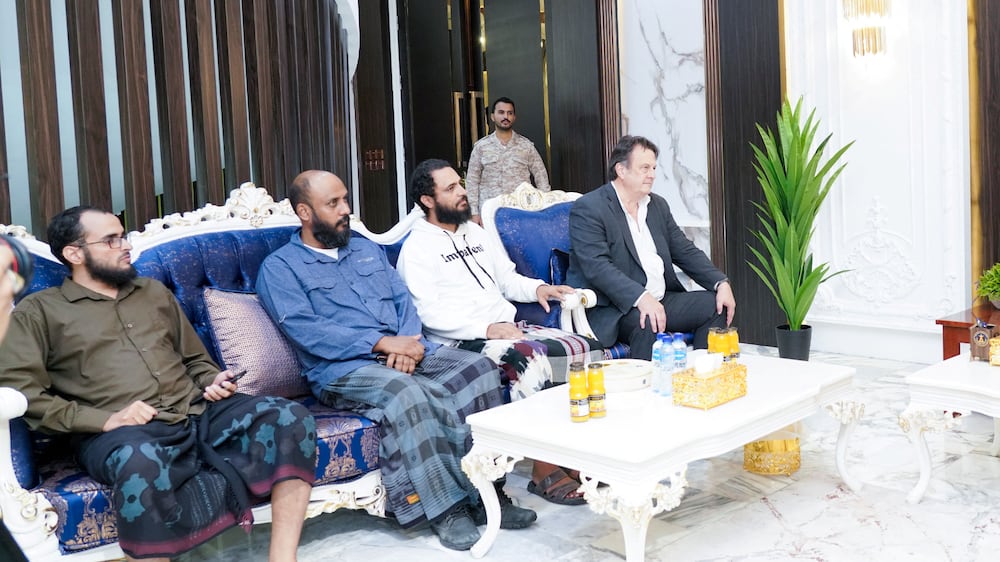Five UN security staff who were kidnapped in Yemen 18 months ago have been released.
UN Humanitarian Co-ordinator for Yemen David Gressly met the freed men and the head of Yemen's Southern Transitional Council whose forces helped secure the release of the hostages, who were seized in Abyan province 18 months ago by Al Qaeda in the Arabian Peninsula.
Mr Gressly said he was extremely pleased to see his Yemeni colleagues in good health in Aden.
“All five of our staff are receiving support. They are in good spirits and are in contact with their families,” he said.
Farhan Haq, deputy spokesman for UN Secretary General Antonio Guterres, said on Friday, when their release was first reported: “The Secretary General is delighted to learn of the release of Akm Sufiul Anam, Mazen Bawazir, Bakeel Al Mahdi, Mohammed Al-Mulaiki and Khaled Mokhtar Sheikh.”
He thanked the state of Oman for its role in helping negotiate the release.
“It did take a lot of patience and a lot of negotiation. We're very sorry to the families of those concerned that it's taken such a long time,” he said.
“The Secretary General is profoundly relieved that their ordeal and the anxiety of their families and friends have finally come to an end.”
Mr Guterres described the kidnapping as an “inhumane and unjustifiable crime” and called for “the perpetrators to be held accountable”.
“He also expresses his solidarity with other people still held against their will in Yemen.”
A State Department representative told The National that the US welcomed the release of the five staff members.
“We call for those responsible to be held accountable,” the representative said.
Yemen has been mired in violence since the Iran-aligned Houthi movement ousted the government from the capital, Sanaa, in late 2014, prompting a military coalition led by Saudi Arabia to intervene months later.
Among Yemen's many destabilising forces are Al Qaeda and ISIS, which have carried out attacks including in the south, where protests broke out last year over deteriorating economic conditions.
The war has killed tens of thousands of people and caused a dire humanitarian crisis with 80 per cent of Yemen's population reliant on aid.
Kidnappings are frequent in the impoverished nation where armed tribesmen and militants take hostages to swap for prisoners or cash.
However, Mr Haq clarified the UN's stance, saying it never provides payment in exchange for hostages.
“We do not encourage the payment of ransoms since that would simply place all of our other staff members at risk,” he told reporters in New York at a press briefing.







